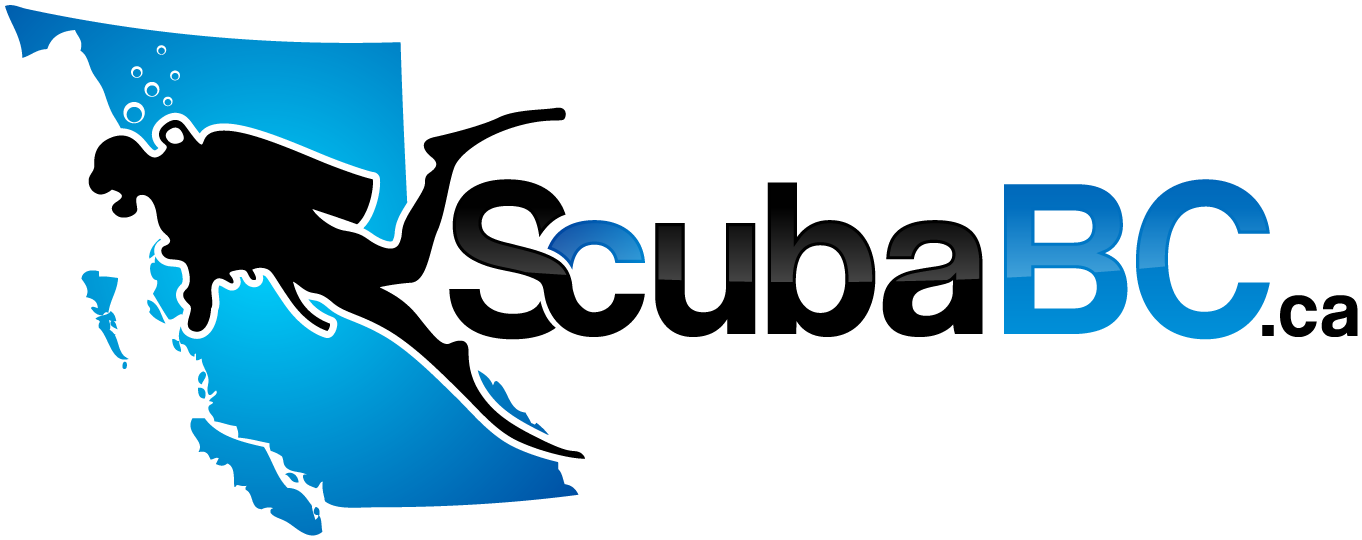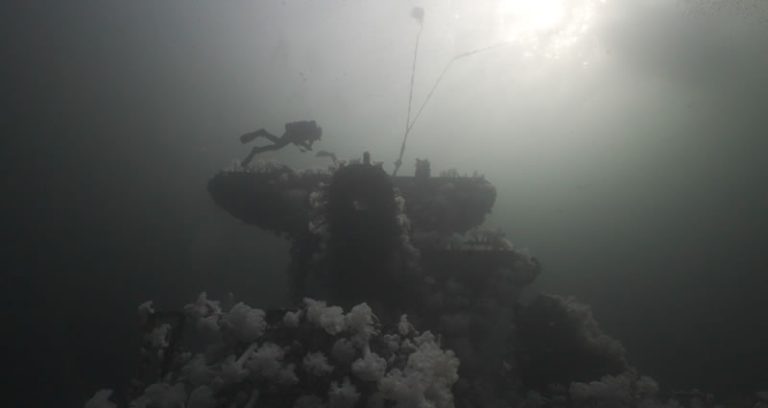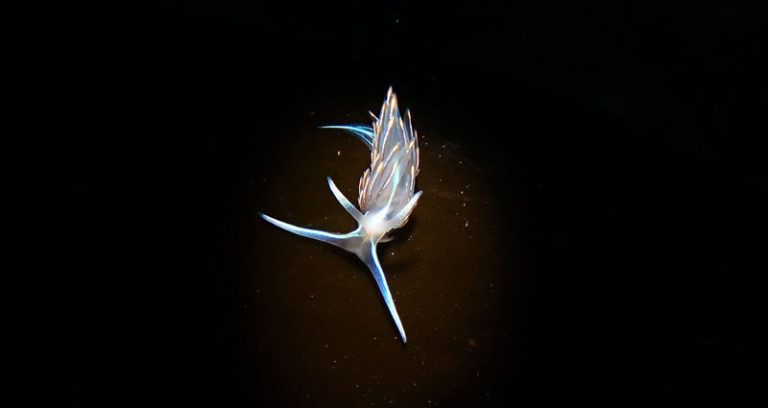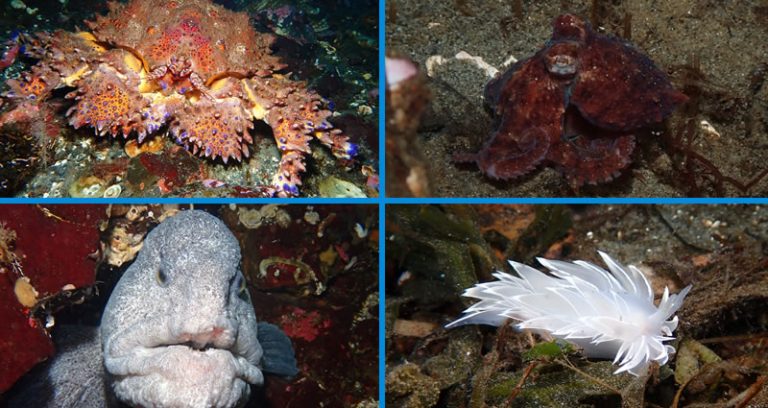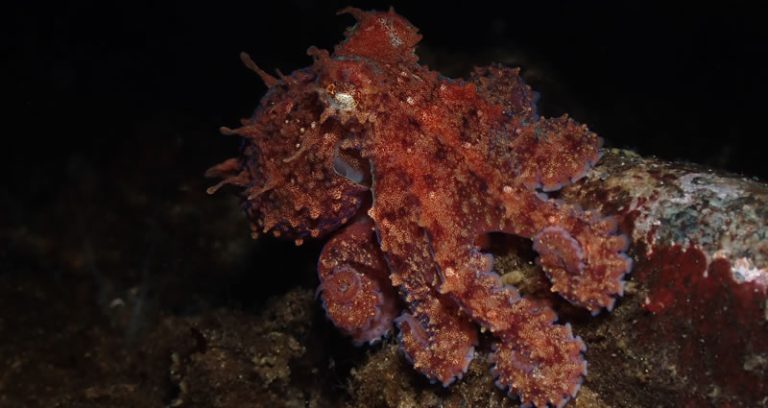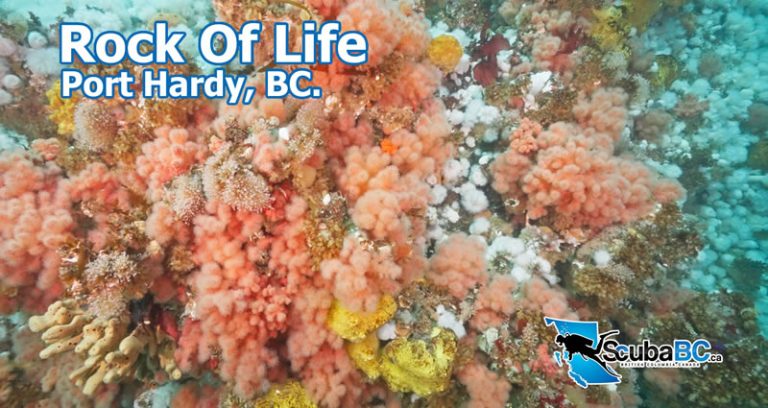Scuba Diving Certification Vancouver Island: Your Ultimate Guide To PADI and SDI Open Water Certification
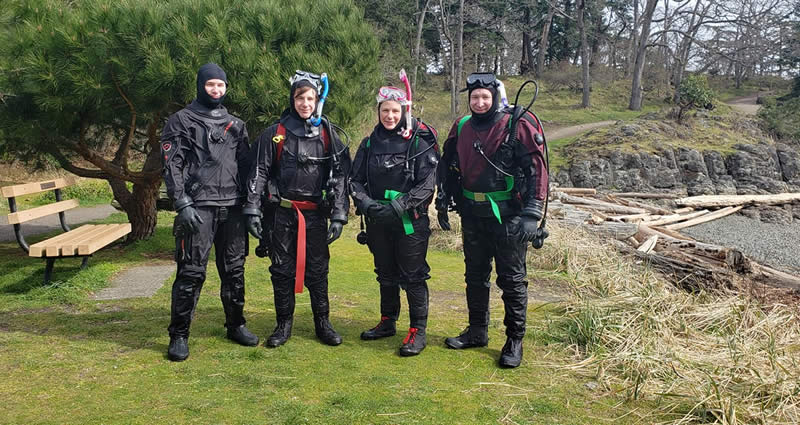
Scuba Diving Certification Vancouver Island: Your Ultimate Guide to PADI and SDI Open Water Certifications
Vancouver Island is a treasure trove of diverse marine life and stunning underwater landscapes. With an abundance of fascinating dive sites, cold water diving conditions, and a vibrant diving community, it is an ideal location to embark on your scuba diving certification journey. In this comprehensive guide, we will explore the two most popular scuba diving certifications available on Vancouver Island: PADI and SDI Open Water Certifications. We will also introduce you to some of the best local scuba diving shops in Victoria, Duncan, Nanaimo, and Courtenay, as well as discuss the unique aspects of diving in the cold waters of the Salish Sea.
Should You Become A Certified Open Water Diver?
First off, scuba diving is an amazing, fun, and safe sport once you've been properly trained in the use of the equipment and some basic safety skills. However, it's not the sport for everyone. When you dive in the ocean or any body of water, you are entering a hostile environment where humans simply don't belong. Thanks to modern technology diving is safer and more accessible than ever but it does have it's challenges.
Scuba diving requires a combination of physical abilities, technical skills, and personal qualities. Here are some of the key skills and qualities that make a good scuba diver:
#1. Physical fitness: Scuba diving can be physically demanding, so a good scuba diver should have good overall physical fitness, including cardiovascular endurance, strength, and flexibility. Because we're diving in cold water you'll be wearing 80-100lbs of gear. You are weightless in the water but you still have to get the gear into the water. This could mean walking from a parking area to the shore along a gravel trail or walking along docks to the boat while carrying or wearing heavy gear.
#2. Comfortable in and around water: You don't have to be an Olympic level swimmer to scuba dive. It's a very slow moving sport, we don't really do anything fast. You will however, need to be very comfortable in the water and the ability to swim or tread water is important.
#3. Technical skills: Scuba diving requires a range of technical skills, including buoyancy control, equalization, navigation, and communication. These are all skills you're going to learn as an open water diver so you won't be expected to be an expert right away. These skills are easy to grasp and fun to learn.
#4. Problem-solving ability: Scuba diving can present unexpected challenges, and a good scuba diver should be able to remain calm under pressure and problem-solve effectively in the event of an issue. As an open water diver you will be trained in how to deal with problems if they arise.
#5. Attention to detail: Scuba diving requires attention to detail and a methodical approach to equipment set-up, dive planning, and execution. You will learn these skills in your open water course. Remember, your scuba equipment is a life support system. You want to make sure you're doing everything right.
#6. Respect for the environment: A good scuba diver should have a deep respect for the marine environment and prioritize sustainable diving practices, including reducing their impact on the environment and protecting marine life.
#7. Communication skills: Effective communication is essential in scuba diving, both with dive partners and dive professionals. A good scuba diver should be able to communicate clearly and effectively in a variety of situations.
#8. Continuous learning: Scuba diving is a continuous learning process, and a good scuba diver should have a willingness to continue their education, improve their skills, and stay up-to-date with the latest diving practices and technologies.
Overall, a good scuba diver is someone who is physically fit, technically skilled, mentally prepared, environmentally conscious, and committed to continuous learning and improvement. If that sounds like you, read on...
Scuba Diving Certification: PADI and SDI Open Water Certifications
Before you can dive into the breathtaking underwater world of Vancouver Island, you'll need to obtain a scuba diving certification. Two of the most popular and widely recognized certifications are the PADI (Professional Association of Diving Instructors) Open Water Diver and the SDI (Scuba Diving International) Open Water Scuba Diver certifications. Both certifications offer comprehensive training programs that will equip you with the knowledge, skills, and confidence to dive safely and independently in the Salish Sea and anywhere else in the world.
Ultimately, the choice between PADI or SDI comes down to personal preference, availability of training centers, and other factors such as cost and course structure. You cannot go wrong with either when offered by a reputable dive shop with certified instructors.
PADI Open Water Diver Certification
PADI is the world's largest and most popular scuba diving training organization, with over 6,600 dive centers and resorts around the globe. Their Open Water Diver Certification is a three-step process that includes:
Knowledge Development: This stage consists of self-study, classroom sessions, or online learning to understand the basic principles of scuba diving, such as dive theory, equipment, and safety procedures.
Confined Water Dives: Here, you will learn and practice essential scuba diving skills in a controlled environment, such as a swimming pool or shallow, protected waters.
Open Water Dives: Finally, you will apply your newfound skills during four open water dives under the supervision of a PADI-certified instructor. These dives can take place in various shore dive sites around Vancouver Island, allowing you to explore the vibrant marine life and unique underwater landscapes firsthand, while you earn your certification.
Upon successful completion of the PADI Open Water Diver course, you will be certified to dive independently with a buddy to a maximum depth of 18 meters (60 feet).
SDI Open Water Scuba Diver Certification
SDI is another reputable scuba diving training organization known for its innovative approach to diving education. Their Open Water Scuba Diver Certification follows a similar structure to the PADI certification, with a combination of knowledge development, confined water dives, and open water dives. The key difference between the two certifications lies in SDI's emphasis on using modern technology and online learning platforms for the knowledge development component.
The SDI (Scuba Diving International) Open Water Diver training is designed to provide students with the knowledge and skills necessary to become safe and competent open water divers. The course consists of three main components: knowledge development, confined water dives, and open water dives.
Knowledge Development: During the knowledge development component, students will learn the principles of scuba diving, including equipment selection and maintenance, dive planning and execution, underwater communication, and emergency procedures. Students can complete the knowledge development component through online learning or in-person classroom sessions.
Confined Water Dives: The confined water dives component allows students to practice their scuba skills in a pool or other confined water environment under the guidance of a qualified instructor. This portion of the training is designed to help students become comfortable with their equipment, improve their buoyancy and swimming techniques, and practice emergency procedures such as mask sharing, buddy breathing, and more.
Open Water Dives: The open water dives component is the final portion of the SDI Open Water Diver training, where students will apply the knowledge and skills they learned in the previous components in a real-world diving environment. During these dives, students will demonstrate their ability to plan and execute safe dives, perform basic navigation underwater, and handle emergency situations.
Upon completion of the SDI Open Water Diver training, students will receive a certification card, allowing them to dive independently and explore the underwater world safely and responsibly. Overall, the SDI Open Water Diver training provides students with a comprehensive and well-rounded education in scuba diving, emphasizing safety, competence, and responsible diving practices.
Upon successful completion of the SDI Open Water Scuba Diver course, you will be certified to dive independently with a buddy to a maximum depth of 18 meters (60 feet).
Local Scuba Diving Shops Offering Certifications in Victoria, Duncan, Nanaimo, and Courtenay
Vancouver Island is home to numerous scuba diving shops that offer either PADI and/or SDI Open Water Certifications, as well as a range of scuba diving equipment, rental services, boat charters, and guided dive tours. Below is a list of the top local scuba diving shops in Victoria, Duncan, Nanaimo, and Courtenay.
Scuba Diving Certification In Victoria
a. Frank Whites Dive Store: This PADI 5-Star IDC (Instructor Development Center) offers a full range of PADI courses, equipment sales, rentals, and air fills. They also organize regular dive charters and guided dive tours to explore the incredible dive sites around Victoria and the southern Gulf Islands.
b. Rockfish Divers: Another popular PADI dive center in Victoria, Rockfish Divers provides scuba diving courses, equipment rentals, and dive trips to the region's top dive spots. They are known for their friendly staff and emphasis on environmental conservation.
c. Wilson Diving: Established in 1992, Wilson Diving has maintained a full service retail store, travel department, teaching facility and repair center. They offer the full range of PADI courses and certifications.
Scuba Diving Certification In Duncan
a. Pacific Watersports: As a PADI 5-Star Dive Center, Pacific Watersports offers scuba diving courses, equipment sales and rentals, and dive trips around Vancouver Island. Their experienced instructors are dedicated to providing a safe and enjoyable learning experience.
b. Coastal Divers: Primarily focuses on training and offers the full range of PADI diver training. Tim & Becky have a wealth of Scuba Diving knowledge to share with their customers.
Scuba Diving Certification In Nanaimo
a. Nanaimo Dive Outfitters: NDO has been in operation for over 20 years and is well-known for its commitment to providing high-quality training through SDI. They are a full service scuba diving store with a full range of diving equipment, rental gear, service department, air fills, nitrox fills, and they also operate a dive charter boat to access the local wrecks and other great dive sites.
b. Sink or Swim Scuba: This PADI 5-Star Dive Center is located in the heart of Nanaimo, offering scuba diving courses, equipment sales, rentals, and air fills.
b. Sundown Diving: Another well-established PADI dive center in Nanaimo, Sundown Diving provides a wide range of scuba diving courses, equipment sales and rentals, and dive charters in the Nanaimo area.
Scuba Diving Certification In Courtenay
a. UB Diving: Offering the full range of PADI courses, UB Diving is a highly-rated dive center located in Courtenay. They provide scuba diving certifications, equipment sales and rentals, air and nitrox fills, and guided dive trips to some of the best dive sites in the region including Port Hardy.
b. Pacific Pro Dive: Started in 1994, Pacific Pro Dive offers the full range of PADI certifications and specialty courses. They also have a fully stocked dive store offering equipment sales, rentals, air and nitrox fills.
Drysuits and Cold Water Diving
Diving in the waters of Vancouver Island is a unique experience due to the cold water temperatures, which typically range between 7°C (45°F) and 10°C (50°F) throughout the year. As a result, drysuit diving is highly recommended and often required when diving in this region.
A drysuit is a specialized type of exposure suit that seals the diver's body in a waterproof layer, allowing them to wear insulating undergarments to stay warm during the dive. Drysuit diving does require an additional certification (it can be completed in a few hours) so you know and understand how to safely operate your drysuit.
It's not a complicated piece of gear to operate but there are a few essential skills you're going to need to know to stay safe and comfortable. The drysuit certification is usually offered along with your open-water certification.
All of the dive centers on Vancouver Island that provide PADI or SDI training will be able to provide drysuit training and drysuit rentals for those who are new to cold water diving.
YOU CANNOT RENT A DRYSUIT IF YOU ARE NOT CERTIFIED
The Diving Community On Vancouver Island
The diving community on Vancouver Island is passionate, welcoming, and eager to share their love for the underwater world. Almost all of the local dive shops organize local dives through dive clubs or guided dives. Joining your local dive club or participating in the group dives is an excellent way to meet like-minded divers, learn from experienced divers, learn about the various dive sites, and discover all of the hidden gems of the region's dive sites.
Coming from someone who was a brand new diver not too long ago, the dive community on Vancouver Island has been amazing. Being able to "plug-in" to the community immediately upon finishing my certifications was instrumental in my progression as a diver. Diving is a lot more fun when you can enjoy it with like-minded people!
Marine Life of Vancouver Island and the Salish Sea
The marine life in the Salish Sea surrounding Vancouver Island is incredibly diverse and abundant, making it a paradise for divers. Some of the species you may encounter during your dives include giant Pacific octopuses, wolf eels, sea lions, various species of rockfish, nudibranchs, and sea stars.
What Comes After Your Open Water Certification?
After obtaining an Open Water certification on Vancouver Island, there are several options for divers who want to continue their scuba education and improve their skills. One option is to pursue an Advanced Open Water certification, which builds on the knowledge and skills gained in the Open Water course and introduces new diving experiences and techniques. The Advanced Open Water certification includes five adventure dives, including deep diving, navigation, and night diving, among others, and provides divers with an opportunity to explore different diving environments and scenarios.
After becoming an advanced open water certified diver you will be certified to go to a depth of 130 feet, which is the limits of recreational scuba diving. This opens up vast new diving opportunities.
Another option for divers on Vancouver Island is to pursue specialty certifications that focus on specific aspects of diving, such as your enriched air (nitrox) certification, wreck diving, deep diving, boat diving, underwater photography, or even rescue diver certification.
These specialty certifications allow divers to explore their interests and gain specialized knowledge and skills in their chosen areas. There are also technical diving certifications available for divers who want to explore more challenging environments, such as deep wrecks or caves.
Overall, there are many options for divers on Vancouver Island who want to continue their scuba education and improve their skills. Pursuing advanced certifications or specialty courses can enhance the diving experience, broaden knowledge and skills, and provide new and exciting diving opportunities.
Frequently Asked Questions About Scuba Diving Certification
The first step to getting started with scuba diving on Vancouver Island is to complete a certification course. Certification courses are typically offered by scuba diving organizations such as PADI or SDI and involve a combination of classroom learning, confined water dives, and open water dives. You can find a list of Vancouver Island scuba dive training centers at the top of this article.
Scuba diving certification courses typically require participants to be at least 14 years old (depending on the organization), be in good physical health, and pass a swim test. To earn your certification you will be required to demonstrate a variety of skills that you will learn in your open water course.
While being a good swimmer can be helpful in scuba diving, it is not necessarily a requirement. Divers need to be comfortable in the water and able to swim short distances, but many of the skills learned in scuba diving courses focus on buoyancy control and underwater mobility, rather than traditional swimming techniques.
Scuba diving is generally considered safe when proper training and safety protocols are followed. However, like any sport, there are risks involved, and divers need to be aware of the potential hazards and how to manage them.
The cost of scuba diving certification can vary depending on factors such as the organization, the location, and the type of course. On average, certification courses on Vancouver Island can range from $800-$1200, plus additional costs for your personal equipment such as a mask, snorkel, and fins.
As part of your open water course most training facilities include all of the required rental gear including drysuit, buoyancy control device, regulator, weights, and tanks. You will want to purchase your own personal equipment which would be a mask, snorkel, and fins.
Some common diving injuries or risks could include decompression sickness, barotrauma, and nitrogen narcosis. In your open water course you'll learn how to mitigate these risks by following proper safety protocols, monitoring your air supply, and staying within your skill level.
Scuba diving can be contraindicated for some medical conditions, such as heart or lung problems, or certain medications. It is recommended to consult with your doctor and obtain medical clearance before starting a scuba diving course.
Yes, divers can wear corrective lenses or prescription dive masks to correct their vision while diving.
While it is possible to dive in cold water with a wetsuit, a drysuit is highly recommended for extended dives in cold water environments. Drysuits provide superior insulation and protection against the cold, making them ideal for divers who plan to spend significant time in cold water.
The time it takes to become a certified scuba diver depends on the certification course and the individual's pace. A typical Open Water Diver course can typically take 7-10 days to complete. Generally this consists of a few class room sessions, a couple of pool sessions, and then a weekend of diving in the ocean (2 dives per day). Start to finish you'll be a certified open water diver in less than 2 weeks.
The maximum depth that a certified Open Water Diver can dive is typically 60 feet (18 meters).
Ready To Get Open Water Certified?
Scuba diving certification on Vancouver Island is an unforgettable experience that opens up a world of adventure and discovery beneath the waves. Whether you choose to pursue a PADI or SDI Open Water Certification, you'll be well-equipped to explore the incredible dive sites and vibrant marine life that the region has to offer. With a range of top-notch dive centers, an active diving community, and the unique challenges of cold water diving, there's no better place to begin your scuba diving journey than Vancouver Island.
